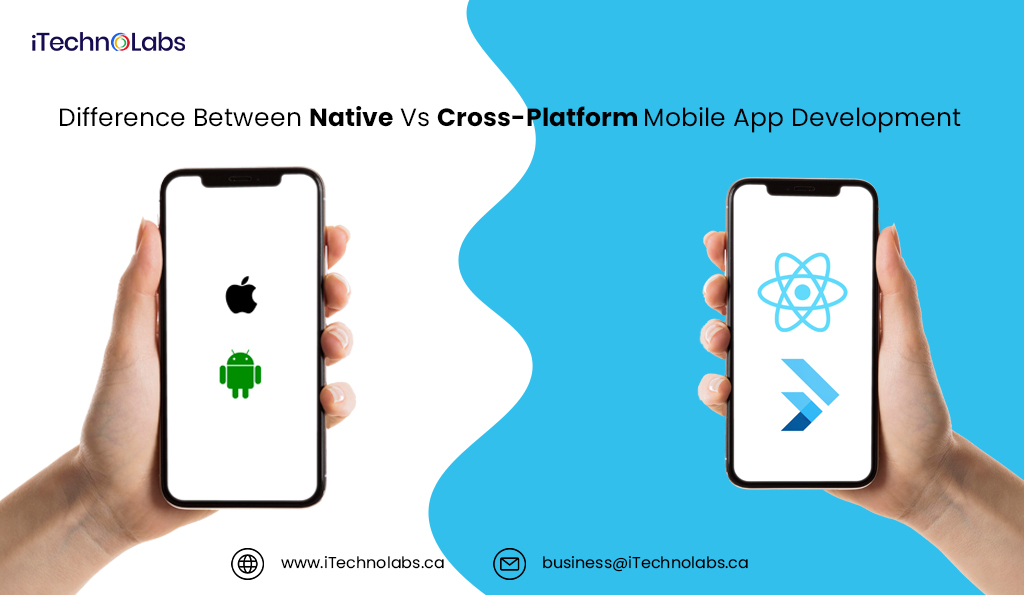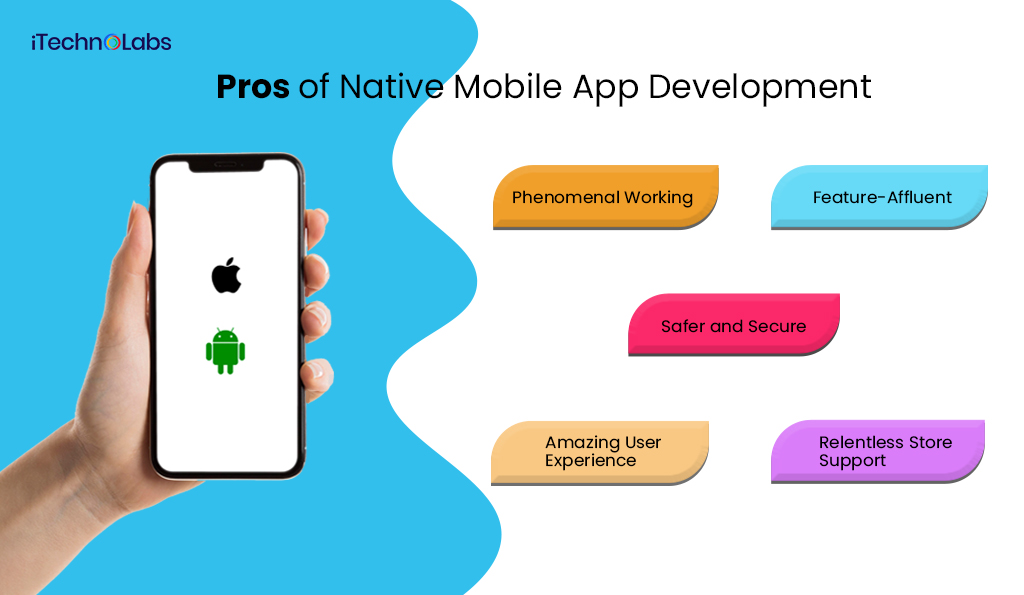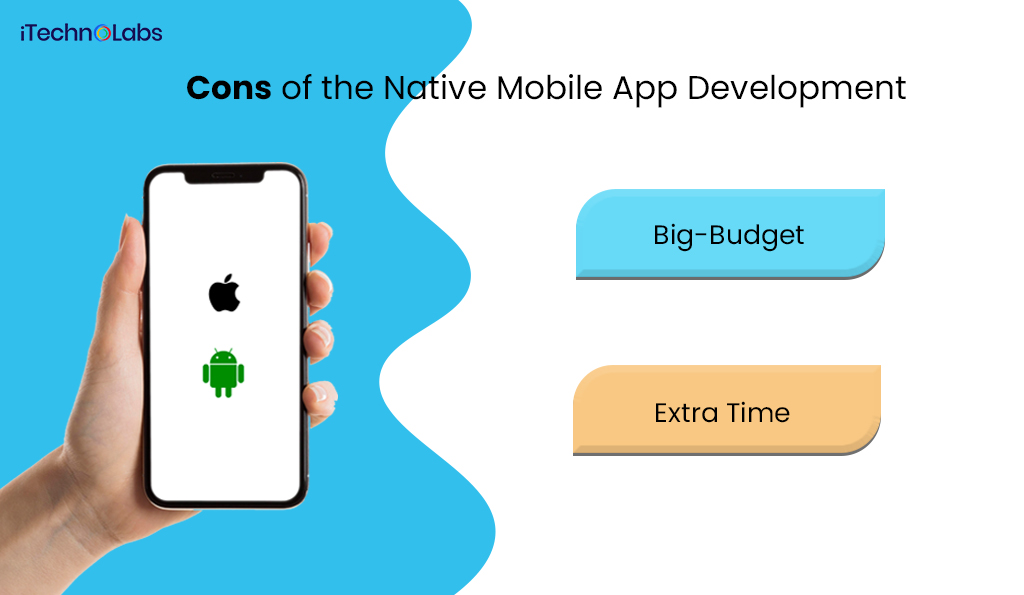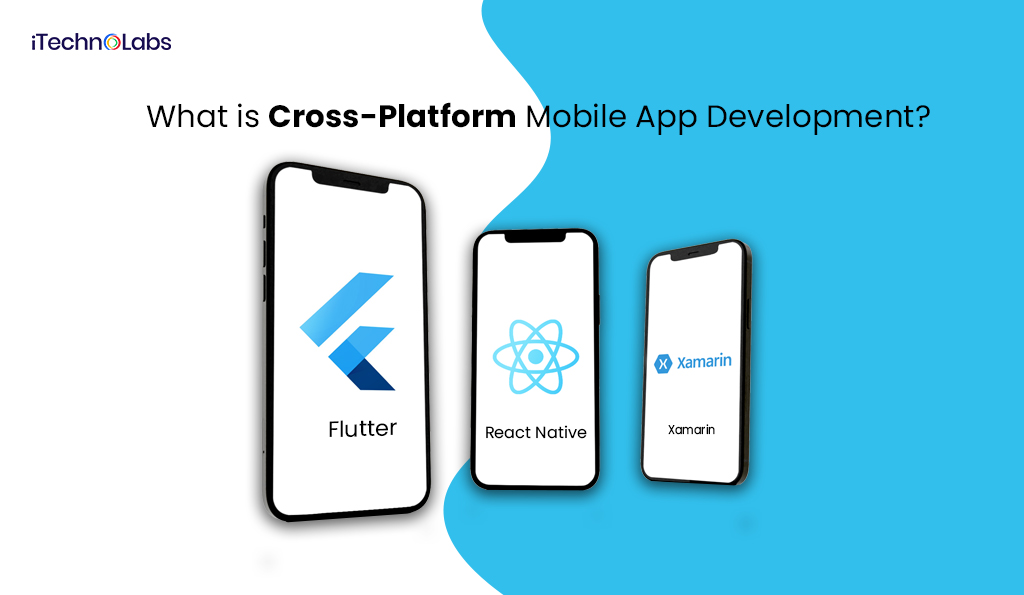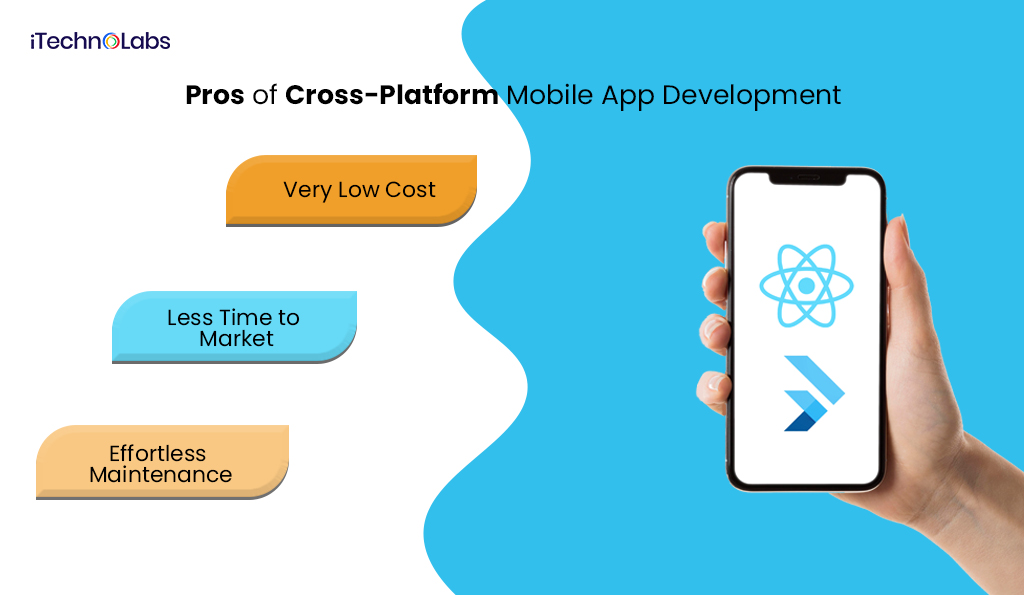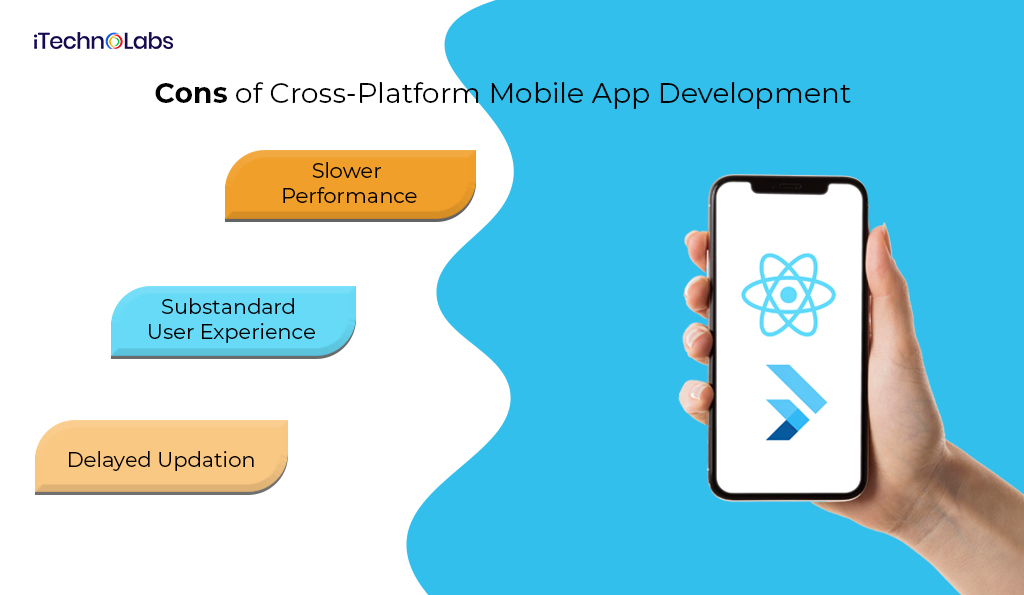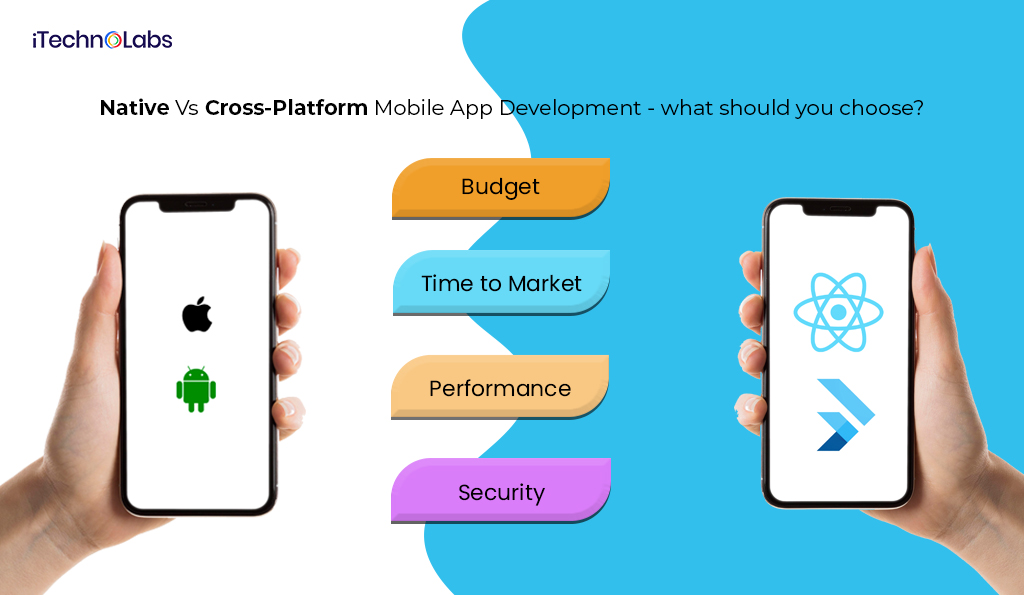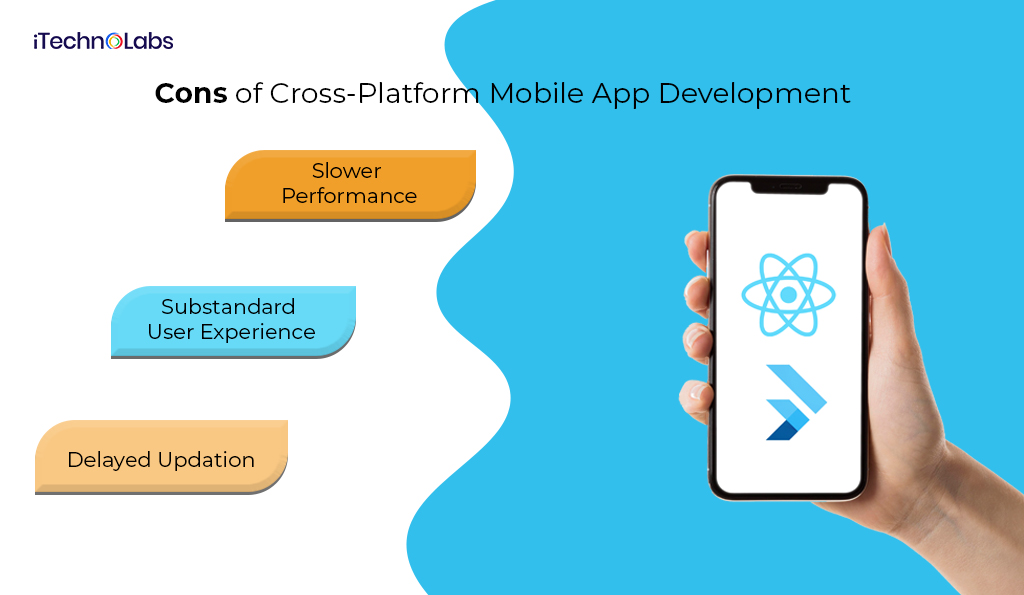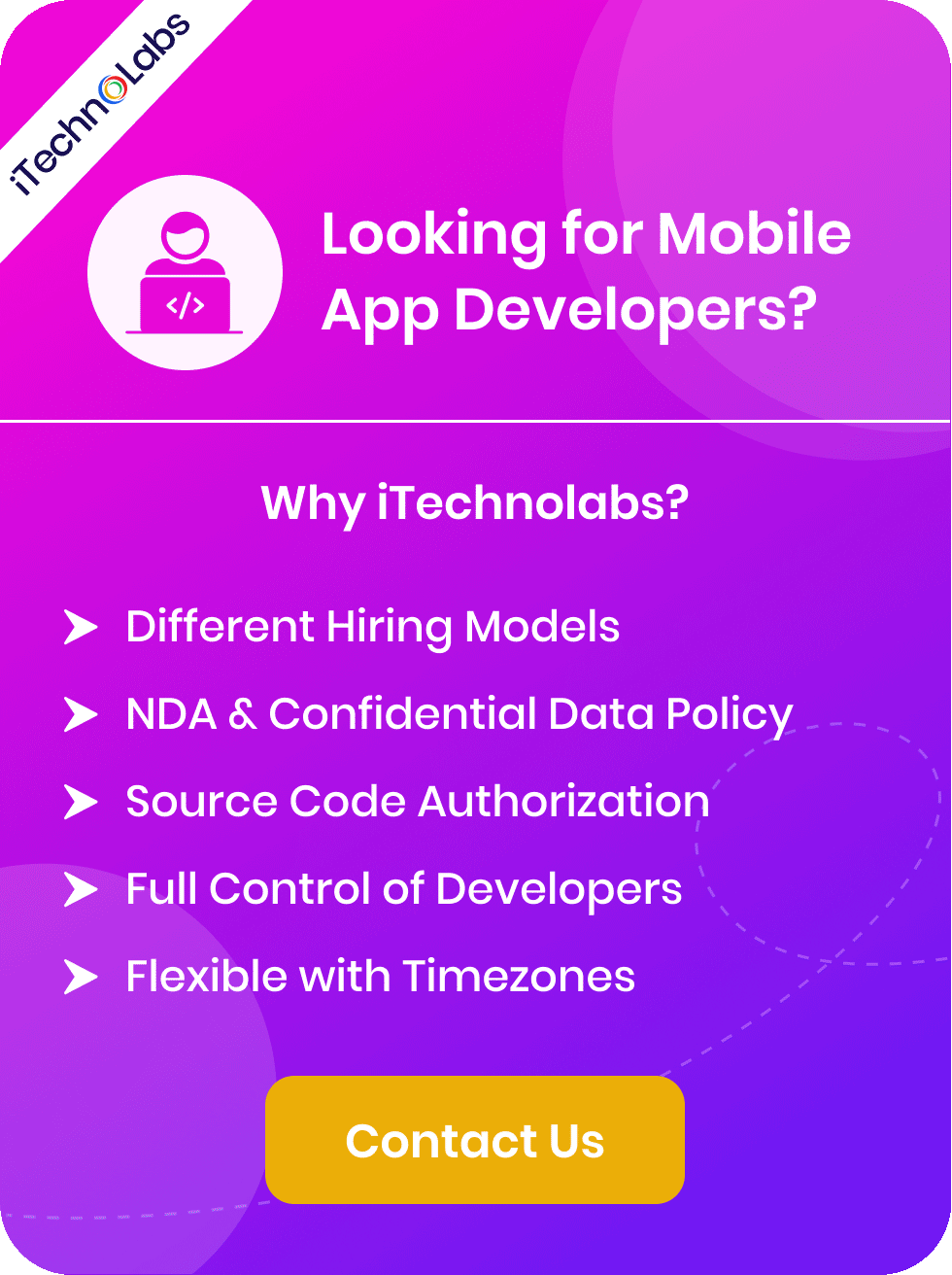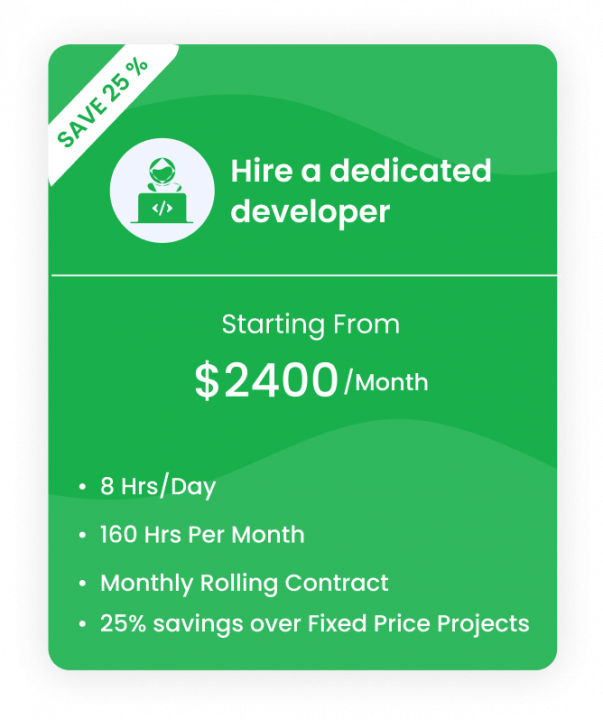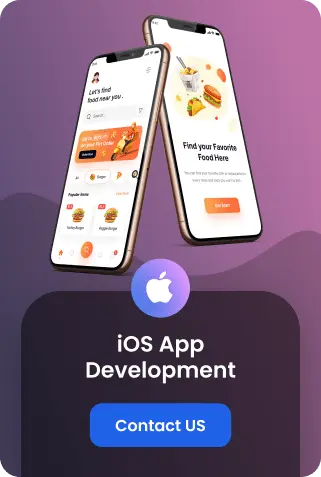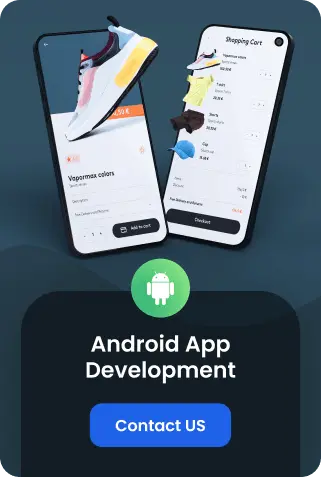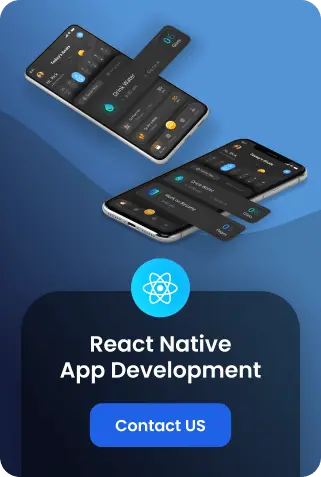Apps have become a way of life. Your pricey smartphone is a mere soulless box if it does not have all kinds of apps on it. Eating, exercising, meeting, talking, learning, dancing, watching – there is nothing left that you can do without the use of apps. In simple words, apps have become all-pervading.
Therefore, it won’t surprise anyone if you are on your way to create an app that is transformational in some way. However, with gazillion apps in existence, creating an app that catches the attention of people and not just gets lost, is a grinding task. You have to ponder upon so many variables before going all out with the app development process.
To rescue you from some of your worries, we present to you a very detailed answer to one of the essential questions that have distressed the minds of many developers – native vs cross-platform mobile app development. This blog gets into the intricacies of native app development and cross-platform app development to help you make an apt choice between the two. Let’s get started.
What is Native App Development?
Now that you are dead set on building a sensational mobile app and choosing between native and cross-platform mobile app development, you should know that there are two notable operating systems in the context of mobile phones. They are – Android and iOS. Android is the brainchild of Google and other leading developers, whereas iOS is the creation of the one and only Apple.
When you decide to develop a mobile app uniquely for Android or iOS, you have picked out native app development. This means if you have crafted your mobile app exclusively for Android, then it will definitely not run on any of the Apple devices. However, if you want your mobile app to run on Apple devices, you will have to create a distinct version of your app specifically for iOS.
But why do you have to create two different versions of the same application for Android and iOS? The answer is as clear as day. As Android and iOS are two distinct operating systems, they use different programming languages and tools. If you have to develop a stirring mobile app on Android, you can not do so without the use of Java or Kotlin. However, in the case of iOS, you will be able to create an elegant app only via the use of advanced programming languages such as Swift or Objective C.
In order to effortlessly integrate native mobile apps with platforms, you need an Integrated Development Environment (IDE). We have listed below the IDEs for multiple platforms –
- Android – Android Studio or IntelliJ IDEA
- iOS – Xcode or AppCode
This is what native app development specifically is. There are a ton of native apps in the market doing the rounds, some of which are – WhatsApp, Adobe Lightroom, Spotify, Duolingo, SoundCloud, etc.
Pros of Native Mobile App Development
We understand what you are thinking. If you have to develop two different versions of a single mobile app, why would and should you choose native mobile app development? It has wastage of resources written all over it. We present to you some solid reasons for why native app development is a choice you cannot so easily ignore –
-
Phenomenal Working –
It’s pretty simple. If you use the programming language of the platform you are building your app upon, the final outcome cannot be no less than a systemised and high-powered app. The access to dynamic APIs is simply the icing on the cake.
-
Feature-Affluent –
What do you call an app development experience when you can just simply access the hardware of the respective device to make your app more efficient? Heavenly, we must say. GPS, camera, microphone – every feature of the device automatically becomes the functionality of your app.
-
Safer and Secure –
You are not using a single codebase for two different versions of your application. Therefore, there is no chance that your app will ever report a bug issue. Moreover, you get to update your app as soon as the SDKs are updated and made more secure, offering no room for bugs to enter your app.
-
Amazing User Experience –
Do you wish to give your users an app experience that they want to keep coming to? Then, native app development is your go-to choice. With native apps, you can access the UI of your device to provide a more compelling and real experience to your users.
-
Relentless Store Support –
Native apps perform remarkably well. When an app does so, it instantly gets published and becomes a chartbuster amongst the other apps in the app store. None can stop such apps from showing up in the top ranks.
Cons of the Native Mobile App Development
There is nothing in the world that is perfect and native app development is very much a part of this world. It has its own set of weaknesses which we have enlisted below –
-
Big-Budget –
This one is a very obvious drawback of developing native apps. You definitely need almost double developer-hours to create two different versions of a single app than you need for one single version of an app. Double developer-hours mean doubt expense. Add into it the different infrastructural needs of two platforms and your budget is sure to go sky-high.
-
Extra Time –
Certainly, you are going to need two separate teams of developers for the distinct versions of your app. Even if the two teams are working simultaneously, it will take more time as the codes for the two versions are completely different and hence, require separate development.
Congratulations! You are now a level up in this native vs cross-platform app development debate. You can now safely move ahead and know what cross-platform app development is.
What is Cross-Platform Mobile App Development?
With twice the resources put into creating two distinct versions of a single app, we know that you are restless to know what the best alternative to native app development can be. What if you do not have to develop two different versions of the application altogether? Yes, it is absolutely possible with the coming of cross-platform app development.
In cross-platform app development, you have to create literally one codebase for your app to run on Android as well as iOS platforms. You can do so via the easily accessible cross-platform frameworks. Cross-platform frameworks are an essential foundation over which you can add features and functionalities of your app that runs on multiple platforms.
Interestingly, cross-platform frameworks offer you different software development kits (SDKs) and libraries for different platforms from which you can weave breath-taking interfaces. Every cross-platform app network has its own programming language using which you can create the codebase.
We know how eagerly you want to know the diverse cross-platform framework available in the market. We have listed below the names of the leading cross platform frameworks for your reference –
- React Native – Facebook developed it. It uses JavaScript as its programming language. The IDEs for the React Native framework are VS Code, WebStorm, Android Studio, Xcode, and Atom.
- Flutter – Google developed it. It uses Dart as its programming language. The IDEs for the Flutter framework are VS Code, IntelliJ, and Android Studio.
- Xamarin – Microsoft developed it. It uses C# and XAML as its programming languages. The IDE for the Xamarin framework is Visual Studio.
We cannot move ahead without letting you know the names of some leading applications that have been developed via cross-platform app development. They are Instagram, Facebook, Bloomberg, Alibaba, Google Pay, Dream 11, etc.
Pros of Cross-Platform Mobile App Development
When you count miracles of the world, you count cross-platform app development in it. It is truly a miracle as it is has a lot of benefits to offer which are stated below –
-
Very Low Cost –
Let us state the obvious first. One codebase means only one team of developers. One team of developers means that you get the application for two separate operating systems at the price of one. We cannot think of anything better than this.
-
Less Time to Market –
Again, let us state another obvious benefit. You know that you are creating a single codebase for multiple platforms. Obviously, you are saving time. With lesser development time, your app can hit the market earlier than what was decided.
-
Effortless Maintenance –
One single codebase is used to develop applications for multiple platforms. One change in the code for the purpose of maintenance and upgradation means application across multiple platforms being maintained and upgraded equally. This ensures consistency.
Cons of Cross-Platform Mobile App Development
Given below are the disadvantages of using cross-platform app development –
-
Slower Performance –
Your cross-platform app needs to interact with the hardware of the respective devices to activate some essential features on it. The need to do so adds another layer of abstraction which slows down the performance of the application.
-
Substandard User Experience –
Your cross-platform app is developed using a programming language that is not the same as the one of the operating system over which it is running. Therefore, it cannot fully avail the UI elements of the parent device. Hence, the user experience produced is below par and unappealing.
-
Delayed Updation –
Do not even think that an update in the software development kits (SDKs) will automate the change in your cross-platform app. You will have to wait slightly longer to be able to integrate the new update into your cross-platform app. This may leave a chance for bugs to enter your system and risk your app.
Native Vs Cross-Platform Mobile App Development – what should you choose?
We are delighted to say that you now possess a sufficient level of knowledge to make the right choice. However, it would do you no harm to take a look at some variables that should be the basis of your decision, at least according to us. Take a quick glance at the factors given below –
-
Budget –
Let’s keep it simple because it is simple. If costs pose a major constraint for you with respect to app development, then go for cross-platform app development. With one single team of developers, you will get an application that runs over multiple platforms.
However, if cost is not a barrier for you, then surely go for separately developed native apps. With high performance and mind-blowing UI design, you can conquer a large audience.
-
Time to Market –
You are a budding startupreneur. You have a brand new idea brewing in your mind and it’s better to release a mobile app for the idea. Otherwise, there are fair chances that it might get duplicated or obsolete.
What would you choose? The answer is clear and simple – cross-platform mobile app development. You will be able to cover a large market on multiple platforms through your application. Native app development will be a big no-no because it takes significantly more time to market.
-
Performance –
If you want sizzling graphics and seamless experience for your mobile app along with great speed, then go for native app development without a single shred of doubt in your mind. Native app development makes the optimum use of SDKs and libraries of the platform to bring out captivating results.
For such apps, cross-app development poses a challenge as UI designs are obviously not a strength of cross-platform mobile apps. You surely have to put extra efforts to reach the level of UI and responsiveness that native apps have.
-
Security –
If your app is a high-risk mobile app, then surely you cannot take any chance with the security of the app. In such cases, native app development is what you are looking for. Native apps have access to the high tech security features of the platform and use it to stringently safeguard your app.
However, such is not the case with cross-platform apps which do not have access to any of the in-built security features of the platform and hence, are not capable of offering as much stability as native apps do.
Related article: React Native vs Flutter: What’s The Best Cross-Platform App Development Framework in 2022?
Still Hard to Figure out Between Native Vs Cross-Platform Mobile App Development?
If you still cannot settle on an app development approach in the native vs cross-platform mobile app development, we have a simple solution for you – consult expert consultants at iTechnolabs. iTechnolabs is an excellent app development company which has created some stellar applications for diverse platforms. The developers at iTechnolabs possess unparalleled expertise and strong experience in making best use of both native as well as cross-platform app development approach.
No, we are not done yet. With ultra-modern technological tools and competent resources, iTechnolabs has been offering sheer excellence through its elaborate native and cross-platform app development services. Consultancy, wireframing, design, development, testing, and upgradation – there is nothing that our developers excel at. We have served clients from a diverse industrial mix with scalable, secure, and sophisticated mobile apps.
Do not let the dust pile up on your dreams. Get started today with your mobile app development process!
